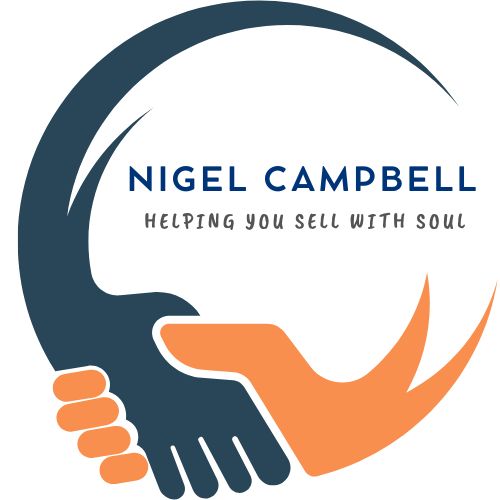Sales Closing What's The Deal?
Struggling with closing sales? Packed with proven strategies, this article simplifies complex techniques into actionable tips. Discover methods like the 'Assumptive Close' and 'Summary Close' to connect genuinely with customers and address their needs effectively. Ideal for business owners at all levels, these techniques are designed to boost your confidence and closing success. Dive in and transform your sales approach today!
Think about this: you've been talking to a customer for a month, and now it's time to make the sale. This moment is super important.
In sales, knowing how to close a deal is what makes some business owners good at growing their business.
Did you know that 95% of the time, how a customer feels at this point can make or break a sale?
Welcome to my easy guide on how to get better at closing the deal. This is for everyone, whether you've been selling for years or are starting. I'm gonna share some cool tips and tricks to help you get better at this.
You'll learn about what customers think and how to use some smart methods to make more sales. Let's get started!
What is Sales Closing?
Sales closing is when you finally get a customer to say "yes" and buy something.
It's the last part of your hard work. You found people to sell to, showed them your stuff, and answered their questions. It's important because it's not about selling something. It's about growing your business and making good relationships with your new customers.
Being good at closing sales means you understand what your customers need.
Common Challenges in Closing Sales

Closing a sale can take time and effort. Here are some problems you will often face:
The Hesitant Buyer: Sometimes, customers show interest but hesitate to say "yes." They may have concerns about the cost or be uncertain about their current need for the product.
Overcoming Objections: Be prepared to address concerns about how your product compares to others.
Speaking To The Decision-Maker: Sometimes, the person you're talking to can't make the buying decision. You might need to talk to someone else, like their boss or a group of people who decide.
Building Value: It's important to show how your product or service can help the customer. If they don't see the value, they won't buy it.
Creating Urgency: You need to make the customer feel like they should buy now, but without being too pushy.
Essential Sales Closing Techniques
Here are some ways to close a sale:
The Assumptive Close: Act like the customer is already going to buy. Start talking about the next steps.
The Now or Never Close: Tell the customer about a special deal that won't last long to encourage them to decide fast.
The Summary Close: Remind the customer of all the good things about your offer.
The Question Close: Ask, sales closing questions that help the customer think about their decision.
The Sharp Angle Close: If a customer wants something extra, like a discount, say you can only do it if they buy right away.
The Takeaway Close: If price is a problem, offer to take away something to make it cheaper.
The Testimonial Close: Share stories of other happy customers.
Body Language and Tone Play A Part in Sales Closing

How you act and speak can help in making a sale:
Leveraging the Impact of Your Tone

Remember, the goal is to use body language and tone to build trust, show empathy, and convey confidence.
When aligned with your verbal message, these tools can enhance your ability to close sales successfully.
Leveraging Technology in Closing Sales

But wait there are other things that you can do to improve your sales closing technique and that means incorporating technology which will help you sell better. Here's how:
Customer Relationship Management (CRM) Systems
CRM systems like Salesforce, HubSpot, and Popcorn CRM centralize customer information. They provide a single platform for storing and managing it. This comprehensive view helps business owners personalize their interactions. They do this based on the customer's history, preferences, and prior engagements.
Customer Relationship Management (CRM) systems track all interactions, including emails, calls, and meetings. This allows business owners to follow up strategically and on time. It increases the likelihood of a sale.
The system ensures no follow-up is missed by sending automated reminders. Timely follow-ups are often key in closing sales. Automation helps maintain consistency and punctuality.
Sales Enablement Tools
Presentation and Proposal Tools: Platforms like Prezi, Canva, and Proposify enable salespeople to create engaging presentations and proposals. These tools can help articulate the value proposition more effectively. This makes a stronger case for closing the sale.
E-signature Solutions: Tools like DocuSign or Adobe Sign streamline the finalization of contracts. E-signatures remove the hassle of physical paperwork. They make it easier and faster for clients to sign off on deals.
Analytics and Reporting Tools
Data-Driven Insights: Analytics tools integrated within CRMs or standalone platforms, such as Tableau, provide valuable insights. They show sales trends, customer behaviour, and conversion rates. These insights can guide sales strategies and identify areas for improvement.
Performance Tracking: Keeping track of sales performance and understanding which tactics are most effective can help refine closing techniques.
Communication and Collaboration Tools
Video conferencing is essential for remote selling. Tools like Zoom or Microsoft Teams help maintain a personal touch when interacting with clients face-to-face.
Instant Messaging and Collaboration: Platforms like Slack and Microsoft Teams facilitate quick communication and collaboration within sales teams. They enable better coordination and strategy planning.
AI and machine learning can predict what customers might want and can also manage and send out personalized messages.
---
Frequently Asked Questions
Here are some common questions and answers about sales:
The key is to focus on the value your product or service brings to the customer, rather than just making a sale. Use consultative selling techniques. Listen to your customer's needs. Offer solutions that meet those needs. It's also important to recognize buying signals and close at the right time.
This is a common objection that requires a delicate balance. First, ensure that you have addressed all their concerns. Ask open-ended questions to understand what specific aspects they need to think about. Offer extra information or support that might help in their decision-making process. Sometimes, setting a follow-up date can also be effective.
While it's possible, it's not always advisable to push for a close in the first meeting. This is especially true in complex or high-value sales. The first meeting often focuses on building rapport. It also aims to understand the customer's needs and establish trust. But, if the customer shows strong buying signals and a clear need for your solution, a first-meeting close could be appropriate.
Body language is extremely important in sales. It communicates confidence, empathy, and sincerity. Positive body language, like maintaining eye contact, nodding, and open gestures, can build trust and rapport. Mirroring your client's body language can also create a subconscious sense of alignment.
Price objections are common. Often, you can address them by refocusing the conversation on the product's value and benefits. Understand the client's budget constraints and see if your offering is flexible. Sometimes, breaking down the cost to show long-term savings can be effective.
While sellers can use discounts as an effective closing tool, they should use them judiciously. Frequent discounts can devalue your product or service. Instead, focus on the value proposition. Use discounts as a strategic tool, perhaps as part of a limited-time offer to create urgency.
Conclusion
Closing sales is about understanding your customers and using the right techniques. Remember to:
Want to get even better at sales? Sign up to my weekly mailer and grab yourself a free ebook in the process. You can also follow me on social media for more tips and tricks!
References and Further Reading
For more information on sales closing techniques, you can check out these books and blogs
"Influence: The Psychology of Persuasion" by Robert B Cialdini PhD
"SPIN Selling" by Neil Rackham
Harvard Business Review - Sales
"The Challenger Sale" by Matthew Dixon
LinkedIn Learning - Sales Courses
Happy selling! ?
